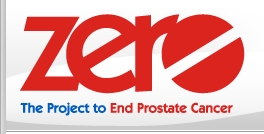| ||||||||||||||||||||||||||||||||||||||||||||||||||||||
|
Prostate Cancer PreventionYou can't prevent prostate cancer just by taking vitamins or supplements, but growing evidence says changing your diet and behavior could lower your risk.Visit the Research section for new studies about prevention.
On this page:
It is hard to determine the impact of a single food in a complex diet, but more large and long term studies are underway to confirm that consuming certain substances actually fights cancer. Speak to your doctor before dramatically increasing your consumption of any one food.
The “Western Diet” or a diet high in fats and red meat may contribute to higher rates of prostate cancer.
Men with a body mass index (BMI) of 32.5 or higher are 1/3 more likely to die from prostate cancer. Men with a BMI of 35 are 60% more likely to have a recurrence of prostate cancer in 3 years. Men with a BMI of 30-39.9 are 20% more likely to have a recurrence of prostate cancer. Proteins and hormones stored in body fat such as leptin and insulin-like growth factor may promote prostate tumor growth in obese men. Additionally, diets high in fat may promote tumor growth in many cancers. Further, there are recent studies that indicate doctors may be having a difficult time diagnosing prostate cancer in men who are obese because as the BMI goes up, PSA goes down masking the aggressiveness of the cancer.
Bad cholesterol may be linked to prostate cancer risk. Early studies suggest a link between high cholesterol and prostate cancer, as bad cholesterol or low-density lipoprotein (LDL) contributes to increases in dyhydrotestosterone or bad testosterone. High levels of testosterone or bad testosterone may impact the chance of having prostate cancer and prostate cancer severity. Cholesterol plays a role in cell growth in the body and in cancer. Accumulation of cholesterol within the prostate membrane may stimulate signals that promote cancer progression. Leading researchers are suggesting that doctors should screen for cardiovascular disease along with prostate cancer because evidence is strong enough to indicate a link.
Exercise is associated with lower metabolism and weight loss which can contribute to lowering the risk of prostate cancer. While studies are inconclusive that exercise has a direct impact on prostate cancer risk, exercise results in the temporary reduction in testosterone chief contributor to male hormone dependent cancers such as prostate cancer and helps lower one’s weight when applied with a healthy diet. By lowering your weight through diet and exercise, PSA levels may go down and some studies suggest that tumor growth is slowed by as much as 30%. However, in order to fully determine direct links to exercise and the reduction of prostate cancer, a long and extensive randomized trial is needed.
Sex has yet to be proven to increase the risk of prostate cancer. In fact, studies show that ejaculation 3x per week may reduce the risk of getting prostate cancer by 15%. As prostate cancer is a testosterone related disease, connections have been sought between it and sexual behavior. High testosterone levels, vasectomy and history of frequent sexual activity have been studied, but not found to increase risk of prostate cancer.
We now know smoking can contribute to the growth of prostate cancer tumors. New studies also show Nicotene may also interfere with the process of chemotherapy.
While some supplements may help, nutrients from foods prove more effective. Studies have shown that supplements of the vitamins and nutrients mentioned above can reduce risk of prostate cancer, but careful attention needs to be paid to product quality and proper dosage. The best way to consume cancer fighting nutrients is through the foods in which they are found. Comparison studies have shown far better results from whole grains over fiber supplements, cooked and raw tomatoes over lycopene supplements, and so on. Check out health claims made by supplement manufacturers For example, there is no solid evidence that saw palmetto has a positive effect on prostate cancer risk or severity. Read bottle labels carefully and seek independent evaluation.
Related Stories | |||||||||||||||||||||||||||||||||||||||||||||||||||||


